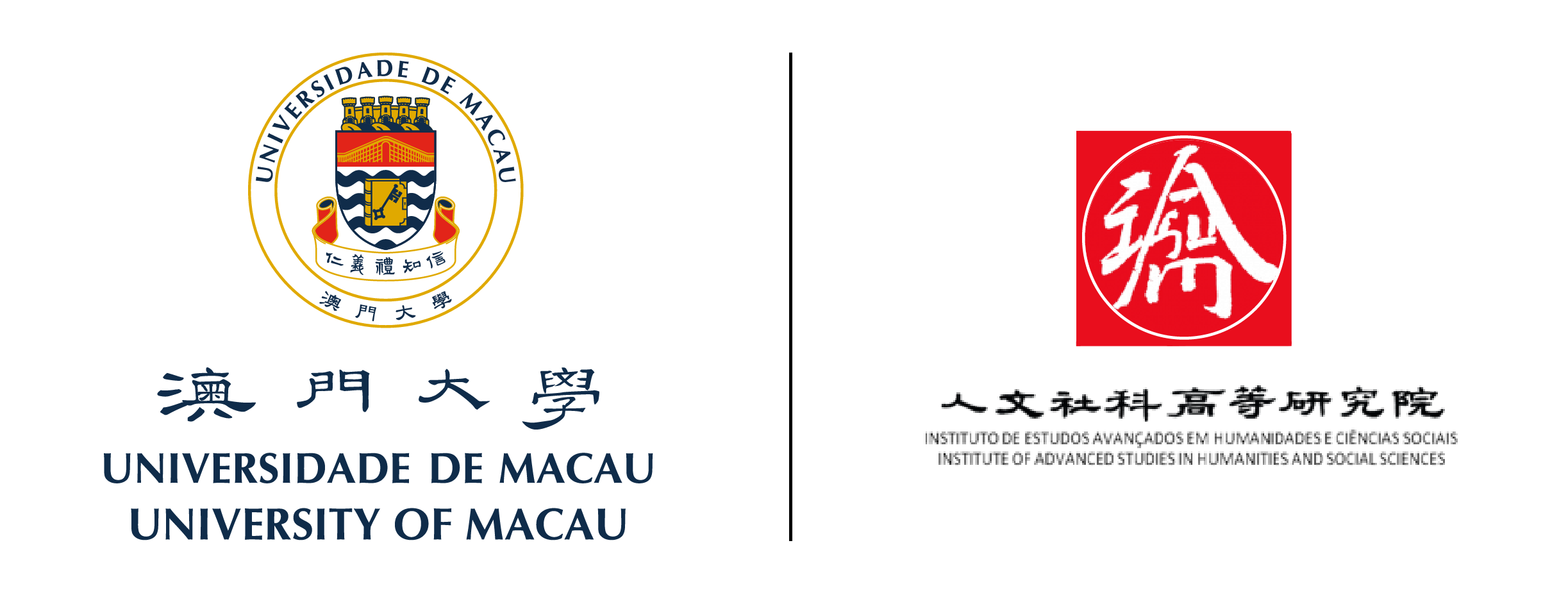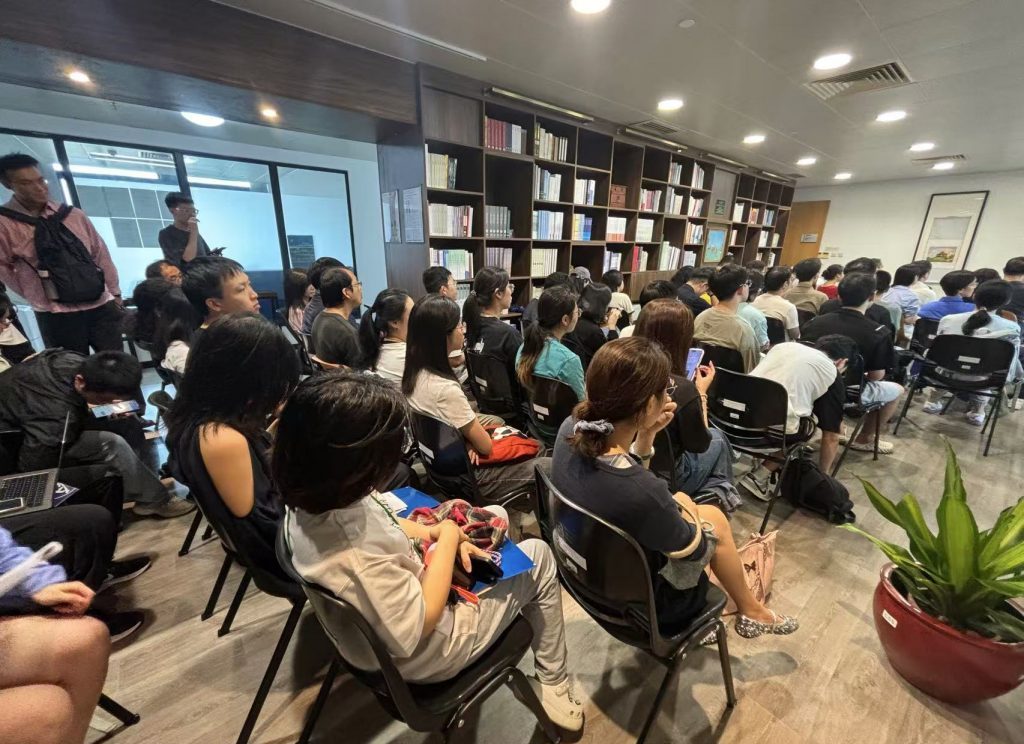
On November 13, the fifth session of the “IAS X Interdisciplinary Academic Party,” organized by the Institute of Advanced Studies in Humanities and Social Sciences (IAS), was successfully held in the Common Room at the IAS in the Cultural Building. The theme of this session was “Heidegger and Our Times: AI Technology, Historical Perspectives, and Temporal Forms.” The event featured Prof. Shih-Diing Liu from the Department of Communication in the Faculty of Social Sciences, Prof. Qingjie Wang, Distinguished Professor from the Department of Philosophy and Religious Studies and Prof. Jiang Sun, Chair Professor from the Department of History in the Faculty of Arts and Humanities as the speakers. Prof. Xingzhong Yu, Chair Professor of the Faculty of Law and Director of IAS, moderated the session.
Prof. Liu began the event by discussing the dominant role of AI technology in contemporary life, noting that this topic has primarily been driven by the sciences and engineering, with relatively less input from the humanities and social sciences. He emphasized the profound value of Heidegger’s philosophy in understanding the nature and impact of AI technology. Prof. Liu argued that technology in modern society is not merely a tool but deeply shapes our daily lives and ways of being.
Prof. Wang then explored the concept of “temporal forms,” discussing how perceptions of time across different eras impact social structures. He highlighted that the value of “time as money” and the advocacy for “slow living” reflect this concept’s implications. Following this, Prof. Sun examined the “anxiety” and “unease” brought about by technological advancements from a historical perspective. He argued that these sentiments are not unique to the present day but are inevitable outcomes of each wave of technological change, emphasizing the tension modern technology creates between humanity’s experiences and future uncertainties.
The professors then engaged in an in-depth discussion based on pre-collected questions concerning AI’s potential to replace human roles, approaches to engaging with AI, and Heidegger’s concept of “poetic dwelling.” Prof. Liu noted that while AI will replace certain jobs, it will also drive a restructuring of the social division of labour. Prof. Wang suggested that “poetic dwelling” represents humanity’s call to live in the world with creativity and artistry, rather than merely pursuing the material benefits brought about by technology.
In the final discussion session, faculty and students actively posed questions, engaging in discussions on AI’s impact on historians, the relationship between technological alienation and capitalist control, and human autonomy. Participants explored how capitalism transforms human labour into “data labour” on social media platforms. The lively and in-depth academic exchange demonstrated a vibrant atmosphere of interdisciplinary interaction.
The IAS Interdisciplinary Academic Party series aims to foster academic interaction and interdisciplinary exchange within the university, encouraging scholars from diverse fields to collaboratively explore global academic issues. This session attracted faculty and students from various academic backgrounds, showcasing a wealth of scholarly exchange and laying a solid foundation for future collaborative research.







